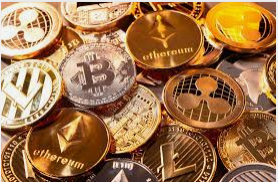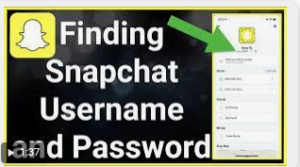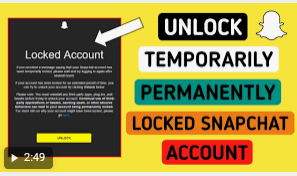

VPN: what is it for? Definition for beginners
You have most certainly heard of VPN if you regularly browse the Internet, or simply have come across an advertisement (for NordVPN) on TV. But what is a VPN? What can it be used for? What does it mean ?
We’ll tell you everything, starting with the definition of VPN so you know right away what it is. We will then answer a series of questions that beginners may ask themselves: is it legal? Is it complicated to use? What are the best VPNs? By the end of this article, you will have mastered the basics of this popular cybersecurity software.
VPN: definition and meaning
Before explaining to you what a VPN is for, we will introduce you to its definition and give you its meaning. Like many words we use in French, VPN actually comes from the English Virtual Private Network. It means Virtual Private Network in French.
The VPN is therefore software that will create a secure tunnel between you and the internet. For this, the information that passes through it will be encrypted and you will obtain a new IP address. The definition of VPN is the same no matter what device you plan to install it on. Indeed, this software is not only compatible on your computer, but can also be installed on a smartphone (whether you are on iOS or Android) or on a tablet. This is called a VPN application.
The best way to define what a VPN is, the best way is to explain how it works. While the definition of VPN may seem complicated, it is a very easy-to-access product. In France, around a third of Internet users use a VPN. To be safe today, it really is a complete and effective product. It will run in the background of your computer (or mobile) and it will provide real security.
How does a VPN work?
Don’t worry, you don’t need to understand in detail what will follow to use a VPN. We will try to explain to you in the simplest way how a VPN works. If you are not interested in the technical side, go directly to the next point, you will still be able to use your software without any problems.
When we say we are using a VPN, what we are actually using is a service provided by a VPN provider. The latter has a network of servers all over the world (in 94 countries, for example, for ExpressVPN), it is thanks to them that your VPN, which we gave the definition just before, manages to offer you navigation secure.
Indeed, when you connect to the VPN, and therefore, to one of your provider’s servers, you make sure that all your internet traffic goes through your provider’s server before arriving at the final site. In the end, the final website will therefore not know your original IP address. Likewise, your ISP will only make fire: it will know that you are connected to the VPN server, but it will lose track of you afterwards.
This is referred to as a tunneling process (via different protocols such as OpenVPN, IPSec, L2TP, IKEv2, etc.). Instead of going through your internet service provider who receives your request and delivers the website you want to visit, the traffic goes through the secure and encrypted tunnel to make you completely anonymous. In passing, you then get the IP address of the server to which you are connected.
In order to decrypt the information coming back from the server, your VPN client installed on your device has the decryption key.
In all of this you see absolutely nothing, everything happens without you realizing it and there is only one thing you need to remember: once the VPN is activated, your traffic becomes anonymous.
What is a VPN for?
If we have succeeded in our mission, you have now fully understood the meaning and definition of VPN and know how it works (we hope!).
You understand that not only will the Virtual Private Network encrypt your data and secure your information, but also give you a new IP address. But more concretely, what is a VPN for? What can we do with it? What are its main uses?
To answer your questions, here are the top VPN use cases, starting with the most common. If around one in three French people use a VPN today, it is because it is a tool that provides real solutions. This gives you real anonymity, the ability to access the whole web (much more than you imagine) etc. After the definition of VPN, here are the practical uses.
To browse anonymously
The number one reason people use a VPN is to anonymize their browsing. This is because, as we pointed out in the previous section, the VPN creates a secure tunnel that encrypts your data and makes you anonymous.
So when you’re browsing an unsecured network, like at Starbucks, for example, you don’t risk someone spying on you. Contrary to popular belief, it is extremely easy for any amateur hacker to see what you are doing if you are connected, unsecured, to an unsecured WiFi network.
By encrypting your data and passing it through a tunnel where only you have the key (via your VPN client), you can sleep soundly.
To Change your IP address
A VPN is also very often used to change your IP address in order, in particular, to bypass many geographic blocks. If you understood our definition of VPN correctly, you know that it allows you to retrieve the IP address of servers all over the world.
So, even if you are in France, you can retrieve an Australian, American, German or South African IP. The choice simply depends on the number of countries in which your VPN provider is present. In your selection, therefore, try to make sure that the VPN provider has servers in the country of your choice.
By changing your IP address, you will be able to access foreign channels not available in France, and even unblock certain games before they are released in France! Also, when you travel abroad, you will still be able to access French channels by simply placing your IP in France. Pretty cool, isn’t it?
Safe to download
Downloading is a very big use case for VPNs. What is a VPN for in this case? It’s very simple. You certainly know that downloading torrents (not free of rights) in P2P is punishable by law in France.
As a result, many smart guys have found the VPN trick to bypass blocks and download anonymously. Since the VPN gives them a new IP address, their real IP address is never apparent. Please note that we absolutely do not invite you to practice these activities which, remember, are illegal.
To protect yourself against DDoS
If a hacker wants to harm you, he can very easily orchestrate what is called a DDoS attack on your router or internet box. This then saturates your bandwidth, making internet use almost impossible.
A VPN will then also be used to protect you against this type of attack. And yes, let’s remember that it gives you a new IP address. Therefore, if the hacker wants to do a DDoS attack on your server, he actually runs into a server from your VPN provider. The latter will then most certainly have installed many firewalls capable of fighting DDoS.
Ultimately, no attack will reach your home network.
Here is, in 4 broad lines, what a VPN is used for. There are still other derivative uses of this software, but here you have the main ones.
Is it complex to use?
Using a VPN is as easy to understand as its definition. Anyone, even those less comfortable with computers, can use a VPN perfectly. Indeed, it is extremely intuitive to use and easy to install.
Whether you are on a computer, tablet or mobile, you will usually have to press your mouse twice, or your screen: once to choose the server, once to connect to it. It’s that easy.
If you are afraid of subscribing to a VPN because you think you cannot use it, fear not, it is extremely easy to use. You can go there with your eyes closed. Even if you run into obstacles, you could still count on excellent customer support from market leaders like ExpressVPN, CyberGhost or NordVPN. They have an online chat that can be reached 7 days a week, 24 hours a day.
People who find using a VPN too complex can then contact them for help. We believe, however, that you will never need to rely on this great customer service.
Is VPN Legal?
After discovering the definition of what VPN is used for, it’s interesting to wonder if this is all legal. Indeed, as we have seen above, a Virtual Private Network allows you to do a lot of things on the internet. It therefore seems quite legitimate to ask whether it is legal to use a VPN, to mask your IP, or to encrypt your data.
In France, the answer is a big YES. It is absolutely legal to use a VPN and you can do so without any risk. We realize that it is possible to engage in illegal activities with a VPN (don’t), but this is your responsibility.
Virtual Private Networks are perfectly legal and are also widely used by companies to secure their network.
In another article, we will see that the legality of VPNs changes depending on the country and that even in 2021, some countries (China, Russia, Iran, etc.) still consider them illegal.





